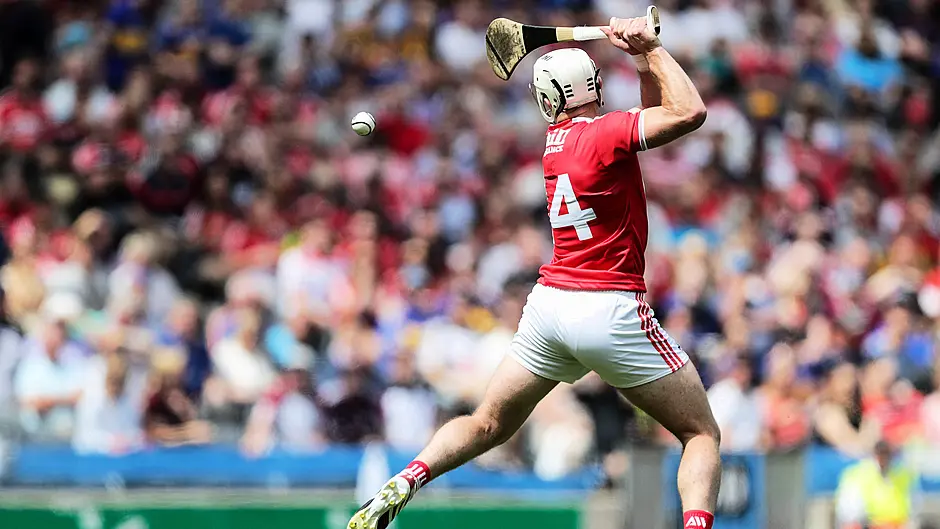WE desperately want to be wrong, but, right now, it’s hard to imagine that there will be any GAA season of substance in 2020.
With the likelihood of social restrictions set to continue far longer than first anticipated or hoped, it simply seems unfeasible to think that we will have on-field action. There is the possibility of games being played behind closed doors, but, while that is something that professional sports have to consider as a necessity due to prize money and various other financial considerations, it’s not as pressing a need in the GAA. Again, we’re happy to be wrong, for the humble match reporter would be quite an important figure if such an eventuality were to materialise.
The lack of an inter-county championship would deny us a lot of things, of course, but one area that we were looking forward to seeing develop was the potential for the Cork hurlers to become a goalscoring team again.
In the five games played in Division 1 of the Allianz Hurling League, Cork scored 11 goals, an average of 2.2. In the 30 games played across Groups 1 and 2 of the top flight, there was a total of 71 goals, giving a goals-per-game (GPG) average of 2.36, not much above Cork’s. Dividing the total by two to give the mean per team of 1.18 GPG, Cork were more than one ahead of that. It’s a situation which historically was par for the course, but, since the middle of the 1990s, when Cork were in the doldrums and endured a six-season spell where only Kerry were beaten in the championship, the goals have dwindled.
It’s worth bearing in mind that the trend nationally has been for more points and fewer goals. In 1990, the average in the championship was 4.5 goals and just over 28 points per game, compared with 2.55 goals and 42.8 point per game in the 2019 championship. However, Cork over-performed the average on the goal front back then and have tended to under-perform it in modern times, though 2018 and 2019 saw them slightly ahead, by 0.01 and 0.3 GPG respectively.
We will look at Cork’s last six All-Ireland wins and, because the most recent of those was 15 years ago, the last five championship seasons in order to provide some evidence of a trend.
Taking the All-Ireland wins, Cork’s GPG in 1984 was 3.25 compared to the average of 2.08; in 1986 it was 4.75 against 2.26 and 1990 was 3.6 versus 2.25. The latter year saw Cork defeat Galway in the All-Ireland final on a scoreline of 5-15 to 2-21, giving them 18 goals in five games.
Incredibly, that match was the second-last time that Cork have won a championship encounter by scoring more goals and fewer points than the opposition; the last instance of that phenomenon was Cork’s very next championship game, the 2-10 to 0-13 win over Waterford in 1991.
By the time Cork claimed the Liam MacCarthy Cup again, in 1999, they did so by scoring just one goal in four games – the average of 0.25 well down on the national championship average of 1.75. Cork’s figure in going all the way in 2004 was 1.57 GPG (11 in seven matches) compared with 1.68 nationally, and the average of 1.0 in 2005 – five goals in five games – fell below the 1.5 national average.
Fast-forwarding to the last half-decade and in 2015, 2016 and 2017, Cork had a GPG of less than 1.0 (0.75, 0.66 and 0.75 respectively) but, by this stage, the national average had fallen too, the 1.5 in 2017 the highest of those three years and 2016 having an average of 1.09.
After Cork snaffled two goals in the opening five minutes of their first league game this year, against Waterford, and three in total in that game, manager Kieran Kingston admitted that it was something on which the team were putting greater emphasis. Only in the last match, the loss to Galway, were Cork out-goaled by their opponents.
However, in losing to Waterford and Limerick at home, scoring more goals didn’t stand to Cork. In addition, while Cork’s tally of 11 goals in the league was well ahead of the next best, Waterford and Tipperary with seven, only Westmeath got fewer than Cork’s 90 white flags. As well, no team allowed more points than Cork’s 110 and only Westmeath’s 11-105 conceded was worse than Cork’s 5-110.
It seems that, in the modern game, it’s easier to get three points than one goal, something borne out by the commonplace occurrence of scorelines like 0-28 or 1-26. Would it be worth experimenting with four points for a goal, or would such a move only lead to teams attempting to tighten up even more?










